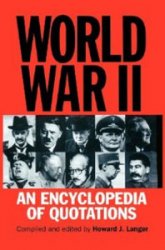The Holy League was a short-lived alliance of several of Europe’s Catholic nations formed to fight Muslim incursions into Christian lands.
The Holy League was in many ways the creation of Pope Pius V (1566-72), who envisioned a new crusade against Islam led by a coalition of Catholic nations: Spain, France, Venice, and the Italian states. Pius attempted to put his plan into action at the beginning of his pontificate but met with little immediate success because Spain was attempting to quash religious and political dissent in the Netherlands (see Philip II), and Venetians were unwilling to risk their lucrative trade with the Levant by disturbing the delicate peace they had established with the Ottoman Turks.
The catalyst for Spain’s final entry may have been the 1568 revolt of the Moriscos, Spain’s indigenous Muslim population. Although Spain’s Moriscos and their revolt were unconnected with the Ottoman Turks, contemporaries were likely to have viewed the events in the context of a larger struggle between Christian Spain and Islam (see Reconquista). At the same time, Venice’s relations with the Muslim East, long dependent on the good relations between its ally France and the Ottoman Turks, became precarious when French civil wars (see Huguenots) forced that country to shift its priorities away from the East, leaving Venice vulnerable. Pius V seized the opportunity to send a papal nuncio to Philip in 1570 promoting his idea of the Holy League. Philip, encouraged by successes in the Netherlands and embarrassed by failures at repelling attacks by Muslim corsairs, quickly agreed.
The Venetian-Spanish armada set sail with papal blessing in September of the following year. At the Battle of Lepanto they captured the Turkish flagship and more than one-third of the fleet and killed perhaps 30,000 Turkish soldiers. The Christian forces suffered casualties as well— 15 or 20 ships sunk, 8,000 men killed, another 15,000 wounded. The success at Lepanto, subsequently captured by Renaissance artists consumed by the battle’s drama, seems to have been an important psychological victory for the beleaguered Catholic nations of Europe, although, as one contemporary observer noted, the battle gained no land whatsoever for Christendom.
The Holy League did not disband after Lepanto, but its aims became less focused. Philip wanted the league’s
Future campaigns to focus on North Africa, where they would be of immediate benefit to Castile. Pius’s successor, Pope Gregory XIII, wanted to maintain the league as a more general crusading force. However, Venice’s trade-based economy had only suffered in the wake of Lepanto, and in 1573 the republic’s rulers signed a peace treaty with the Ottoman Turks, effectively putting an end to the league.
Further reading: J. H. Elliott, Europe Divided, 15591598 (London: Collins, 1968).
—Marie A. Kelleher




 World History
World History









